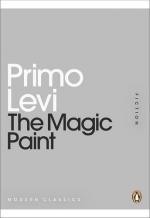|
This section contains 9,733 words (approx. 33 pages at 300 words per page) |

|
SOURCE: “From Savage Elements: Epiphany in Primo Levi's Holocaust Writings,” in Journal of European Studies, Vol. 24, No. 1, March, 1994, pp. 1-21.
In the following essay, Losey explores Levi's use of epiphany in his work, asserting that his “contribution to the epiphanic mode defies traditional notions of influence.”
Primo Levi uses a version of modern epiphany originated by Rousseau and Wordsworth in the romantic period, appropriated by Browning and Pater in the Victorian, and refined by Proust, Joyce and Conrad in the modern.1 But Levi's contribution to the epiphanic mode defies traditional notions of influence. The Holocaust marks the end of Western civilization, and Levi uses the epiphanic mode not to eulogize this civilization but to convey his response to the Holocaust: ‘for me the experience of the concentration camp has been fundamental.’2 His response, according to Irving Howe, displays ‘moral poise: I mean a strength of remembrance that leads...
|
This section contains 9,733 words (approx. 33 pages at 300 words per page) |

|


